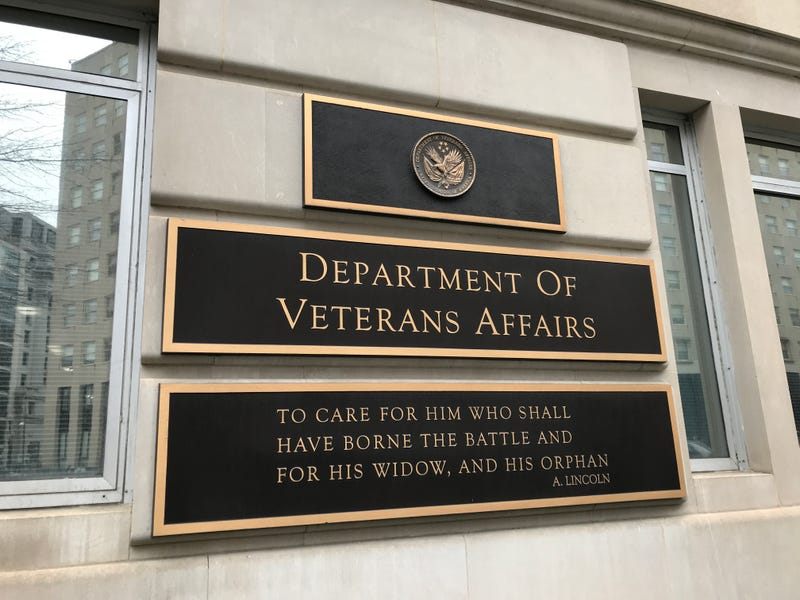
As the White House prepares to release its plan for the 2022 federal budget, veterans groups are calling on President Joe Biden and Congress to prioritize vets with an $11 billion increase to the Department of Veterans Affairs budget.
In 2001, VA's budget totaled about $45 billion. Since then, the budget has swelled as the United States added two wars, along with other conflicts. In 2021, the VA budget reached about $243 billion, second only to the Pentagon and more than five times the 2001 total. The increase the veteran groups are seeking for 2022 is intended to address continued deficiencies in veteran care, the groups argued.
Disabled American Veterans, Paralyzed Veterans of America and Veterans of Foreign Wars released their annual "Independent Budget" this week, outlining what the organizations believe are the most pressing veteran needs to address in upcoming 2022 budget negotiations. The three groups have released some form of their budget report for more than 30 years.
The groups highlighted major priorities in the next budget, including addressing access to care and benefits including for community care through the Mission Act, an expected spike in medical appointments as the pandemic abates, more veterans who may qualify for benefits because of pandemic layoffs, thousands of vacancies at the department, construction and infrastructure needs and more.
"We are attempting to produce an honest assessment of need that is not subject to the politics of federal budget development and negotiations that inevitably have led to continuous funding deficits," the groups wrote in the report."
In recent years, while other federal agencies faced cuts or strict funding caps, VA has seen significant increases. Last year, a month after then-VA Secretary Robert Wilkie declined additional cash from Congress for pandemic response, Congress provided nearly $20 billion to the department to help shore it up during the public health crisis. That $20 billion was in addition to the nearly $13 billion in additional funding then-President Donald Trump's White House requested for VA in the 2021 budget, far above the cap for all federal departments combined.
"We understand that VA has fared better than most federal agencies in budget proposals and appropriations, but the real measure should be how well the funding matches the demand for veterans' benefits and services," the veteran service organizations wrote in their proposal, commending Congress for increasing VA's budget especially in the last two years, but arguing it's still not enough. "VA's budget request has been insufficient for VA clinicians and employees on the front lines to successfully execute new and mounting requirements to improve the lives of our nation's ill and injured veterans, their families and survivors"
The VSOs are seeking billions more for veteran health care and for construction and infrastructure projects, especially on aging VA medical facilities such as the West Haven, Connecticut VA Medical Center, where two workers were killed in November when a steam pipe exploded. Lawmakers including Sen. Richard Blumenthal, D-Connecticut, blamed VA's aging infrastructure for the accident.
VA is already undergoing the beginning stages of its Asset and Infrastructure Review, a major analysis of its facilities across the country intended to help decide which facilities to close, rebuild, renovate and where new facilities may be needed. Critics of the process have compared it to the Pentagon's Base Realignment and Closure (BRAC) program. A commission is expected to send a report with realignment recommendations to Congress and the president in 2022 or 2023.
One of the biggest drivers of the increase for VA's budget is the Mission Act, the groups said, describing the private care expansion as "a significant driver increasing medical care appropriation needs of the VA ... The budgetary impact is likely to increase VA’s exposure to the same spending pressures as those seen in the private sector."
VA's spending on private care totaled about $5.6 billion in fiscal year 2014. In fiscal year 2020, that number had grown to $15.7 billion.
Other priorities the VSOs outlined for VA's 2022 budget included:
- Military toxic exposures research, benefits and presumptive conditions;
- Expanded and increased benefits for surviving spouses of disabled veterans;
- Restoration of the 48-hour disability claims review process, which VA revoked last year;
- Increased access to healthcare services;
- Improved mental health services, including suicide prevention programs;
- Increased efforts to help veterans who are unemployed;
- Improved and increased gender-specific care;
- Increased funding for prosthetics and sensory aids;
- Increased funding for reproductive services such in vitro fertilization.
Read the full Independent Budget here.
—
Reach Abbie Bennett: abbie@connectingvets.com or @AbbieRBennett.
Sign up for the Connecting Vets weekly newsletter to get more stories like this delivered to your inbox.


